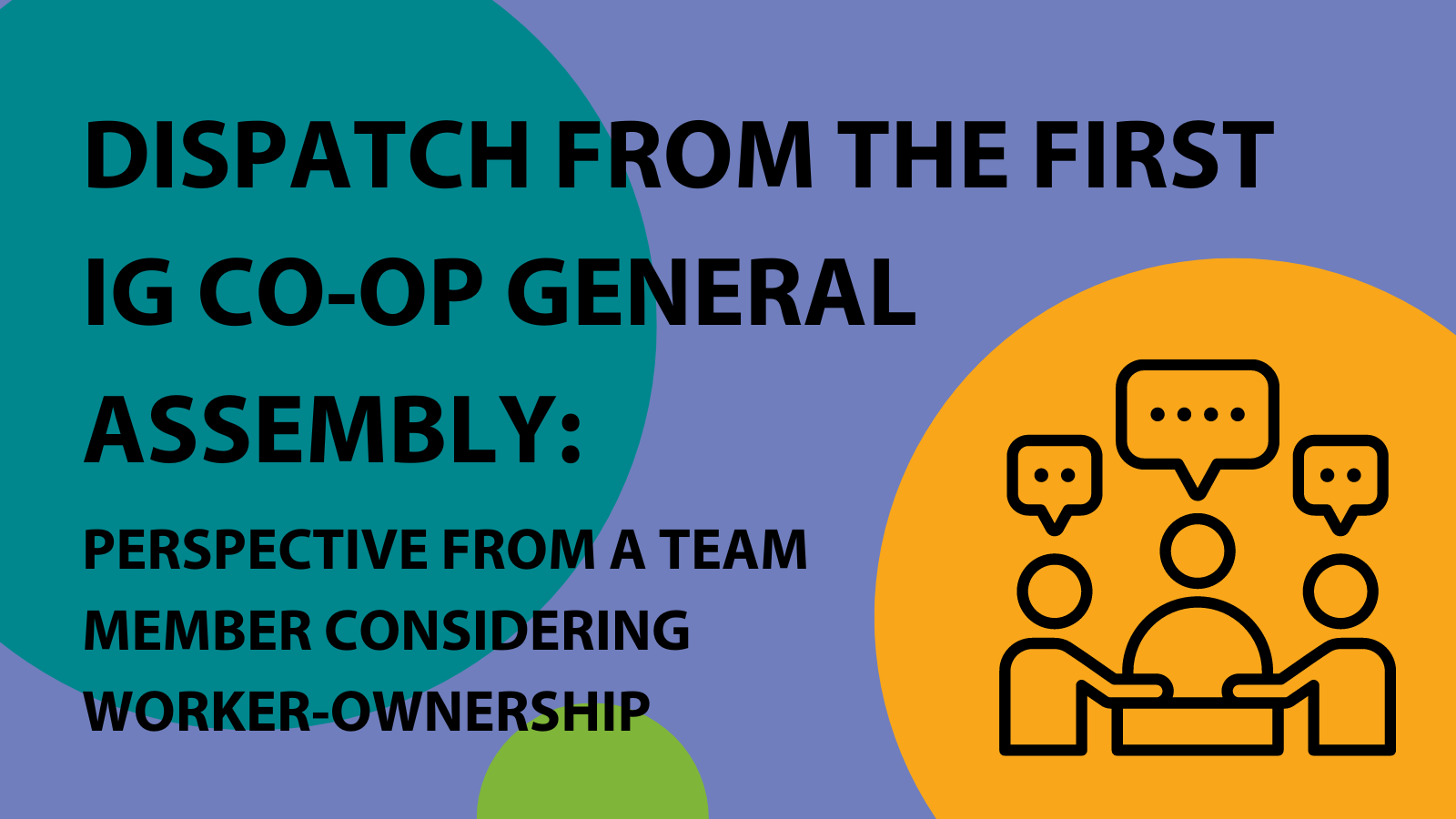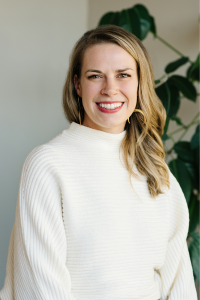
 In mid-March, I logged into a virtual meeting on a Monday afternoon. In some ways, this meeting felt like an ordinary all-staff meeting—a well-planned agenda, breakout room activities, a brief visit from a colleague’s adorable baby, and the thoughtful discussion I’ve come to expect from my team at IG. This was not an ordinary staff meeting, however. This was the first general assembly of The Improve Group worker-owned cooperative.
In mid-March, I logged into a virtual meeting on a Monday afternoon. In some ways, this meeting felt like an ordinary all-staff meeting—a well-planned agenda, breakout room activities, a brief visit from a colleague’s adorable baby, and the thoughtful discussion I’ve come to expect from my team at IG. This was not an ordinary staff meeting, however. This was the first general assembly of The Improve Group worker-owned cooperative.
As you can read here, our goals were to 1) outline the roles and responsibilities of being a member-owner and 2) review and clarify IG’s structure for decision-making.
I am four months into my role as an associate consultant at IG. A big selling point for me when I was considering the job was the fact that IG is an employee-owned cooperative. To put it simply, I’m a nerd when it comes to all things cooperative. I’ve been a voting member and frequent shopper at my local food co-ops for nearly two decades. I have read the histories of Black-owned economic co-ops that emerged as a way for Black Americans to pool resources and provide for their own communities when institutions excluded them. I love learning about the cooperatives providing economic stability for entire communities around the world. I’m fascinated by the idea that in a capitalist society where privately owned business is the default, co-ops can give individuals and communities opportunities to create wealth without needing access to their own capital.
Improve Group employees become eligible to join the co-op after six months to allow time to see if co-ownership is the right fit. Given my love for coops, I am fairly certain that I want to join the IG co-op when I’m eligible. Still, the conversations at the general assembly gave me reason to think more deeply about why I should join the co-op—what are my responsibilities, in addition to the benefits I would get? What does it mean to adopt an ownership mindset, rather than serving as an employee to my employers in the way I was used to?
In considering the responsibilities and rights of employee ownership, I’m keying into a deeper question about what it means to be empowered at work. To be honest, tolerating healthy disagreements and learning when to advocate for my own needs has not always come easily to me. I often feel more comfortable allowing others to make big decisions at work while I go along with the flow instead of troubling the waters with questions, concerns, or needs. But the prospect of being a co-owner with my IG colleagues prompts me to look at empowerment differently. From the cooperative perspective, my individual wellbeing at work is connected to my colleagues’ wellbeing at work. The health of our organization relies on each of us taking responsibility for our role in this system and caring about one another’s wellbeing. I’m learning that being empowered at work means exercising my influence and sharing my voice, even when it’s uncomfortable. I have a responsibility to my colleagues to show up as my authentic self—strengths, needs, critiques, and all.
The idealist in me believes co-ops can be a model for increasing equity and democracy at work. Co-ops have led to positive ripple effects that benefit our families, clients and partners, and local communities. The realist in me knows that navigating the nuts and bolts of cooperative work can be challenging, tedious, and invite points of conflict. Truly cooperative work is a bit messier than having one person, or a select few, make decisions and announce a path forward. But co-ops also make space for everyone to have a voice in major decisions. Outlining rights, responsibilities, and decision-making power makes visible the power structures that often remain hidden in traditional organizations. It allows newcomers like me to see the ways we all share power and to understand our individual roles in collective context.
We ended our first general assembly having met our goals for the day. But we also knew we would need to continue revising these tools. Like any democratic process, there’s rarely a simple, clean endpoint. To me, this is evidence of an organization that is prepared to always be evolving, and I’m excited to be part of the evolution.
